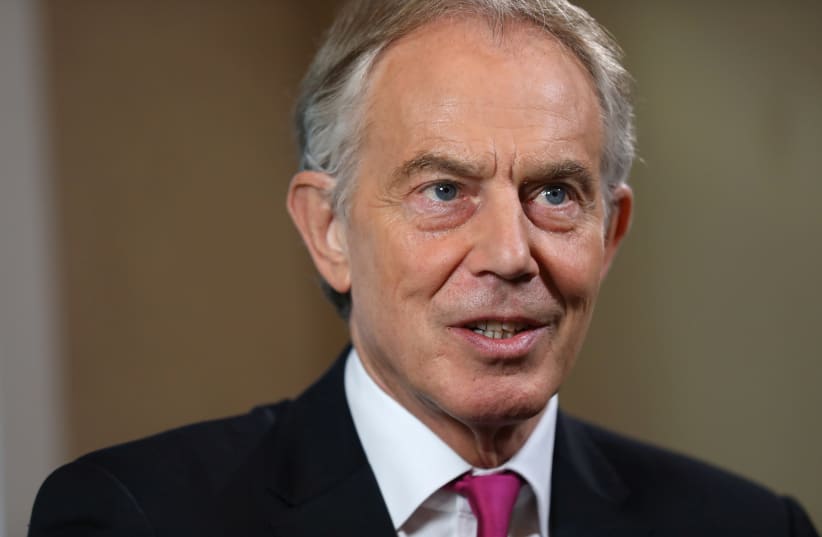Blair will speak at The Jerusalem Post Annual Conference on Thursday, September 24 - watch at this link.“We’ve got to try and bring forward a generation of Palestinian politicians that understand that the only way they’ll get a Palestinian state is through a genuine and deep understanding between people, between cultures and not just a negotiation about territory,” he said.In the meantime, the most important thing for Israel to do is to try to alleviate the Palestinians’ economic situation.Blair, currently the chairman of the Tony Blair Institute for Global Change, was a guest at the White House for last week’s Abraham Accords signing, and enthusiastically touted the agreements, saying they are a goal he has worked towards for many years.“In the end, I think it’s the best way to resolve the Palestinian issue fairly and justly,” he said.While the Arab world still supports the Palestinian cause, Blair said, much of it has “come to the conclusion its unreasonable to expect them constantly to sacrifice their own interests to it.”In the 12 years since Blair left office and focused on Middle East matters, he visited Israel and the UAE and other Arab states an estimated 250 times.Blair said he noticed a major shift in the Middle East, where leaders are trying to modernize.“All over the Arab world there is a struggle around two basic ideas,” he explained. “First, there is a group of leaders who want to modernize their societies and their economies, and they want to distinguish between Islam and Islamism. Second, they want… economies that are open… so if their people work hard, they can do well and raise their families in security and prosperity.”The threats to this vision are the Islamic Republic of Iran and its Shia extremist proxies, as well as other jihadist and extremist groups like the Muslim Brotherhood.“This is a shared interest between Israel and the predominately Muslim Arab nations around how the Middle East will develop… That’s the thing that’s mostly exciting and why there’s peace between the UAE and Israel,” Blair said.As for talk about Saudi Arabia normalizing ties with Israel, Blair said “it’s a much tougher thing.”Still, he said Saudi Arabia is making modernizing moves, when it comes to the place of women and religion in society and the need to diversify its economy away from a reliance on oil. In addition the Tony Blair Institute tracks coverage of the Israel-Palestinian conflict in Saudi newspapers, and has found a turn towards more positive coverage of Israel and a more critical view of the Palestinians.Blair also addressed antisemitism in the Labour party, which he led for 13 years. Former Labour leader Jeremy Corbyn was repeatedly accused of tolerating antisemitism in the party, as well as personal antisemitism in words and deeds.“Antisemitism in the Labour Party is a terrible, terrible thing and a shameful thing,” Blair said. He said he has no doubt that new Labour leader Keir Starmer is taking action against hate.Blair expressed concern about antisemitism in progressive politics worldwide.“One of the things I try to do in my institute and want to do more of is to confront this new entry point – it happens as much on the Left as on the Right and always ends up at the same place – a demonization of the State of Israel,” he said.The former UK prime minister called for the Left to denounce antisemitism and explain “why you can have a reasonable position that is critical of Israel without criticizing the existence of Israel.
Blair: Israel-Palestinian peace will come through ties with Arab states
“The foundation of the approach in the region, that Israelis and Palestinians negotiate peace and then the rest of the region joins, is the diametric opposite of what should happen.”
